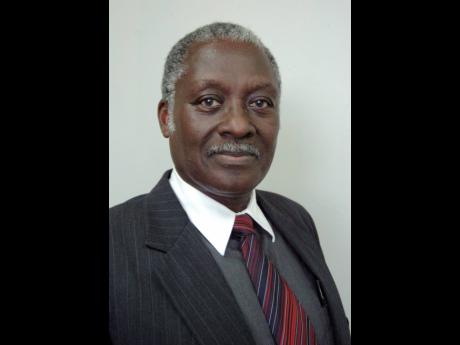Scant regard
Former chair rips Gov’t over lacklustre effort to appoint new ATI appeals panel
Former chairman of the Access to Information (ATI) Appeals Tribunal, Justice (Ret’d) Roy Anderson, is bemoaning the lethargic approach by the State in appointing a new panel following the expiration of the term of the five-member body in February.
Anderson told The Gleaner yesterday that since the expiration of his term as chairman of the tribunal, no one from the secretariat or the ministry had sent correspondence to acknowledge or express thanks for the contributions made by the team that served for five years.
“Professor Edward Baugh, who served on the tribunal before he died in December, and the members of the tribunal did not get a letter from anyone in authority, ‘extending condolences on the passing of your member’,” he noted.
Anderson said it was the members of the tribunal who asked the secretariat to “put out something indicating we were sorry he had passed”.
“When I realised that the term of the tribunal was coming to an end, I indicated to those persons to whom I should make such an indication that it was important that this (tribunal) should not be allowed to just fall away,” Anderson said.
It is the second time this year that critical appointments to public institutions have, seemingly, gone unnoticed by the Government.
On April 21, the Government scrambled to appoint members to the Public Service Commission (PSC) after Opposition Leader Mark Golding raised an alarm that the appointment of the previous members had expired on March 31.
SERIOUS NATURE
The PSC was installed overnight to appoint an acting director of public prosecutions after the attorney general indicated that the incumbent, Paula Llewellyn, had advised that she was unable to carry out the functions of her office “at this time” in wake of a court ruling that said that her extension as DPP last year was “unconstitutional”.
The former chairman of the ATI Tribunal said appeals made to that body are of a serious nature and generally involve information that the appellant believes ought to be made available to them under the ATI Act.
He said the act states that the legislation was a critical part of the institutional framework in a functional democracy.
“One would assume from that that it ought to be treated with a certain amount of seriousness given the perceived role of such an institution,” he said.
The week starting September 23 is International Right to Know Week.
“How can you be celebrating International Right to Know Week when in your jurisdiction, the institutional framework that allows you to have a right to know is not functional?” Anderson noted.
Members who served on the last tribunal were Philip Robinson, Fae Ellington, Anderson as chairman, Baugh, and Dorothy Pine McLarty.

